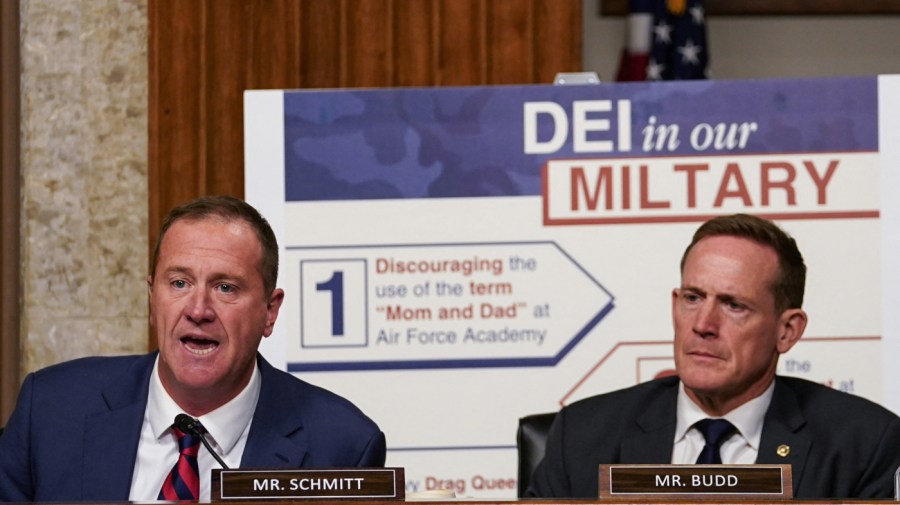
The administrative state was supposed to be dead. At least, that’s what countless mainstream outlets proclaimed last term after the Supreme Court abandoned its longstanding deference to administrative agencies in interpreting their statutes in Loper Bright Enterprises v. Raimondo.
Now, however, the unthinkable — or perhaps the entirely predictable — has occurred: Republicans will control the administrative state come Jan. 20. Of course, traditional conservatism often claimed to oppose the expansion of the administrative state, but Trumpism’s demands — mass deportations, blanket tariffs and much of Project 2025 — will require a significant expansion of the bureaucracy.
Luckily, the court’s move to rein in the administrative state will surely be a blow to the Republican Party’s ambitions, right? Think again.
The reporting often misses the fact that Loper Bright doesn’t reduce an agency’s authority. Rather, it reassigns the task of defining that authority to judges, who, in many jurisdictions, lean overwhelmingly conservative. Accordingly, Loper Bright might give conservatives even greater leverage over the very administrative apparatus they claim to oppose.
To see how we got here, recall that in the 1980s, the court was facing a surge of cases about how much authority administrative agencies could wield. Since Congress tasks agencies with implementing statutes, the court decided that the judiciary should usually defer to agency interpretations of their own statutes — an approach known as Chevron deference. This effectively allowed agencies significant flexibility to define their own authority.
Loper Bright overturned that decision, holding that courts may take the lead in interpreting what powers Congress really meant to give the agencies. Agency interpretations now matter based on their “power to persuade” the courts, a slippery standard from the 1940s that almost no one understands.
A typical law school lecture might spin this as a shift from political agencies to an apolitical judiciary — a theory that sounds noble enough on paper. In practice, though, Loper Bright places even more power in the hands of judges, consolidating decision-making in a judiciary that is more politically charged and more conservative than at any point in modern history.
If President Trump’s first term taught us anything, it is that this conservative judiciary is unlikely to push back against far-reaching interpretations by agencies aligned with their ideological goals.
Mass deportations, for example, do not require agencies like Immigration and Customs Enforcement or Customs and Border Protection to redefine their authority in the slightest.
Blanket tariffs may be more questionable, but during Trump’s first term, courts frequently upheld his tariffs without relying on Chevron deference. Indeed, one of the strongest deference doctrines in American law, Curtiss-Wright deference, grants the executive significant leeway in foreign affairs, and tariffs have long been treated as part of that domain.
Implementation of the Heritage Foundation’s 2025 might require more, for instance, with its proposed changes to the Federal Trade Commission. The FTC’s broad mandate to enforce competition laws comes from the FTC Act’s Section 5, which prohibits “unfair methods of competition in or affecting commerce.” Traditionally, this has focused on harm to consumers: raising prices, reducing output, limiting choices, lowering quality, or stifling innovation.
Project 2025, however, seeks to stretch this definition to include Environmental, Social, and Governance or ESG frameworks. Its argument? ESG practices are anticompetitive because they distort economic freedom by prioritizing a moral agenda over shareholder profits.
According to this reasoning, corporate managers who promote ESG initiatives introduce inefficiencies and exploit shareholder value for personal ideological motives. Businesses, it claims, should focus solely on profits, as this is what ultimately benefits society.
This interpretation would be legally flawed. courts have never viewed increased shareholder profits as a proxy for consumer welfare, which is the cornerstone of antitrust law. Nor do they typically care about a manager’s personal aggrandizement since antitrust law focuses on market effects, not intent.
In fact, ESG could be seen as pro-competitive: It often aligns with long-term consumer welfare by addressing systemic risks like climate change, social instability and governance failures. Moreover, many firms adopt ESG practices because of market demand from investors, consumers, and employees.
Ironically, targeting ESG as an “unfair trade practice” weaponizes antitrust law to impose an ideological agenda. But challenging a regulation that bans ESG practices — such as prohibiting firms from factoring environmental impacts into supply chain decisions — would hinge on arguing that the FTC lacks the authority to regulate ESG because it does not constitute an “unfair method of competition.” Such a challenge would depend on convincing a court to rule that ESG does not qualify as an “unfair method of competition.” Would a conservative court be willing to do that?
True, under Chevron, courts would have deferred to the FTC’s interpretation. That’s not the issue. The point here is that Loper Bright doesn’t necessarily stop courts from siding with the FTC anyway, as long as they find the agency’s reasoning “persuasive” — a judgment often shaped by the court’s own ideological leanings.
If the ideological outcome aligns with their preferences, conservative courts could easily uphold the FTC’s redefinition of “unfair competition.”
So, what can liberals do in response? The siren song of forum shopping — filing lawsuits in friendly district courts to achieve favorable rulings — might not help here. Both parties have used the strategy to slow each other down for years. But these lawsuits often trigger nationwide injunctions, which feed the cycle of judicial overreach. And when that cycle turns, the deck is stacked 6-3 against liberals.
This is the new reality: a conservative bench and an even more conservative administrative state. Elections truly do have consequences.
Raymond Perez is a J.D. Candidate at Yale Law School. His work can be found in the Yale Law and Policy Review.












